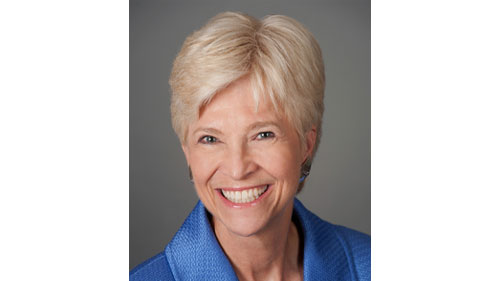
A Call for Equity in Health Care for LGBTQ Youth
by Guest Contributors •
To say that 2020 has been a year like no other in our history is probably the understatement to end all understatements. With the global eruption of the COVID-19 pandemic, we’ve seen the effects of sustained fear and isolation on children, adolescents and adults
Post submitted by Sandra L. Fenwick, Chief Executive Officer, Boston Children’s Hospital

To say that 2020 has been a year like no other in our history is probably the understatement to end all understatements. With the global eruption of the COVID-19 pandemic, we’ve seen the effects of sustained fear and isolation on children, adolescents and adults. Depression and anxiety are on the rise, as is substance use and abuse. Decreased physical activity and social distancing lead to unhealthy perceptions of weight and self-image, as well as intense loneliness.
We’ve also seen a marked increase in patients and families who are too afraid to seek out care and support that they so desperately need. All of which simply underscores the vital importance of the lessons learned from the Healthcare Equality Index, HRC’s national LGBTQ benchmarking tool that evaluates health care facilities' policies and practices related to the equity and inclusion of their LGBTQ patients. The list of symptoms experienced by a nation under quarantine almost perfectly mirrors the top health concerns impacting LGBTQ+ youth and families on a daily basis.
It’s both shocking and heartbreaking to realize that what so many of us see as extreme fallout from unprecedented circumstances reads like a roadmap through the everyday landscape of our LGBTQ+ community’s health needs. And I am so grateful to the Human Rights Campaign Foundation for gathering together the most important lessons learned from the children’s hospitals that have participated in the Healthcare Equality Index.
HRC Foundation recently released two powerful resources for clinics and hospitals to provide better care for our LGBTQ children and youth.In 2007, Boston Children’s Hospital created the Gender Multispecialty Service clinic, the first major program in the U.S. to focus on transgender and non-binary youth. We also founded the nation’s first Center for Gender Surgery. Over the past decade as health care providers across various specialties have seen an increase in young people recognizing that their sex assigned at birth does not match the gender they know themselves to be, there has been tremendous growth in similar clinics to meet their needs.
These two guides offer tested recommendations, vetted by an advisory council of experts in health care, that any clinic or hospital can use to better serve young LGBTQ patients.
-
Comprehensive Care Clinics for Transgender & Non-Binary Youth: Considerations and Best Practices is a new guide that provides advice and best practices for clinics and hospitals that seek to promote the health and well-being of transgender and non-binary youth through the creation of multidisciplinary care clinics.
-
LGBTQ Inclusion in Children's Hospitals: Lessons Learned from the Healthcare Equality Index is a new guide from the Human Rights Campaign Foundation to help children's hospitals foster LGBTQ inclusion for their patients, the families of patients and their employees.
I am so proud of Boston Children’s role in being at the forefront of the youth gender clinic movement and in helping with the children’s hospital report. I am even more proud of the extraordinary work that all of us are doing to deepen our understanding of what our LGBTQ+ patients, families and employees need and bridging the gaps in their support and care. The more we understand, the better equipped we are to evolve with those needs, and eventually get ahead of them instead of striving to catch up.
Whether we’re working to enhance the health of LGBTQ+ patients and families, engaging in the groundbreaking research that will play so crucial a role in defining the future of LGBTQ+ health care, or providing education around the inherent respect of honoring a person’s gender identity, the work we are all doing in this area is essential and so meaningful.
We all know that we can do more when it comes to creating a safe and welcoming culture for all. We know that we can do more when it comes to providing care that is respectful, compassionate and inclusive. Learning from each other is the first step.
Love Conquers Hate
